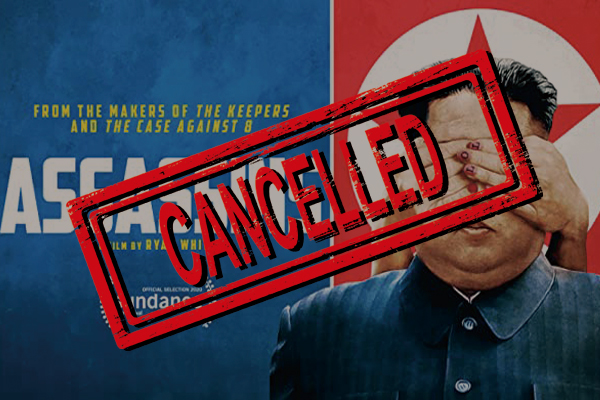The Korean Film Council decided that a new documentary about the 2017 assassination of the half-brother of North Korean leader Kim Jong-un does not meet the criteria of an “art film,” which means it will not be seen my many viewers in theaters in Korea. “Assassins” tells a story of the assassination of Kim Jong-nam in a Malaysian airport. The film by American director Ryan White had its world premiere at the Sundance Film Festival in January.
Due to the council’s decision, the film will not be shown in smaller arthouse theaters that would be likely to screen such a documentary. In Korea, the council has the right to approve or disapprove the art films filed for showing by distributors. Its purpose is to guarantee certain art films are played at theaters that specialize in showing such movies. Ordinary multiplexes in South Korea prefer playing commercial or blockbuster movies over art films, as art films are less profitable.
Local distributors and importers of the movie, as well as some conservative politicians, are protesting the council’s decision. Some people’s comments online argue that the council made the decision to avoid causing an uncomfortable situation for the Moon Jae-in administration and with North Korea. One comment read “did they receive an order from North Korea?”
Tae Yong-ho, a former senior North Korean diplomat who became a South Korean lawmaker of the main opposition People Power Party, argued that the Moon administration is using double standards. Tae compared it to a recent case where the government allowed the publication on technical grounds of the founder of North Korea Kim Il-sung’s autobiography “With the Century.”
“I just cannot understand the reason behind the decision-making process,” said Tae on June 8. “People just want to know how Kim Il-sung’s memoir can be allowed and the movie ‘Assassins’ cannot be shown. The movie’s artistic value has been proven, as it was invited to prestigious international film events.”
Tae also criticized the Korea Public Ethics Commission, a public institution that allowed the publication of the memoir, and the Korean Film Council, which is a public institution under the Ministry of Culture, Sports and Tourism, for its behavior.
Local distributors and importers, including the Coop, Watcha, and kth said they were notified about the movie’s status on May 17 and had applied for another round of review as of June 1. While waiting for the review, they are publicly calling on the council to disclose detailed guidelines on how it decides what is categorized as an art film.
The organizations said the guidelines for what is deemed an art film are that it has aesthetic value and that the story, theme, and the way of expression should be experimental and unique. Also, the movie should show the life of individuals, groups, societies or countries and contribute to the exchange of culture and ideas. The movie should be worthy of release from both artistic and social-cultural perspectives.
The distributors and importers are asking whether “Assassins” falls short in any of the aforementioned categories, as it believes that the movie fits all of them.
“The focus of the movie is not just on the assassination itself, but it is made from the perspectives of the two women who were involved in the assassination,” said the distributors. “The movie talks about testimonies from the two women and human rights issues that rose from the aftermath of the murder. This film talks about individuals, groups, and countries by linking them with North Korea. It contributes to expanding continuous cultural exchange, free exchange of thought and diversity of cultures.”
The agency representing the distributors also said that getting a certificate is not necessarily about proving the movie’s artistic value.
The movie focuses on sharing the two women’s testimony that they had no idea they were involved in an international murder plot. They argue that they thought they were filming prank videos.
“I went to the airport after they told me that they would film some funny videos as they did in previous shoots,” Huong said in a recent interview with a South Korean media outlet. “Another female actress and I were told that we were just supposed to surprise a male actor from behind.”
Doan Thi Huong of Vietnam and Siti Aisyah from Indonesia initially faced murder charges and a sentence of death by hanging. They were caught by security cameras appearing to smear something on the face of Kim Jong-nam at Malaysia’s main airport. Kim died shortly afterward of what Malaysian investigators said was exposure to VX, a toxic nerve agent that is banned by the United Nations. The two women were released from prison in 2019.
Meanwhile, the U.S. Justice Department recently has indicted three North Korean computer programmers for trying to extort and steal more than $1.3 billion as part of a global cyber scheme, which includes the 2014 hack of Sony Pictures Entertainment. The motivation for the hack was believed to be retaliation for the 2014 movie “The Interview,” which ridiculed North Korean leader Kim Jong-un and portrayed an assassination plot against him.


